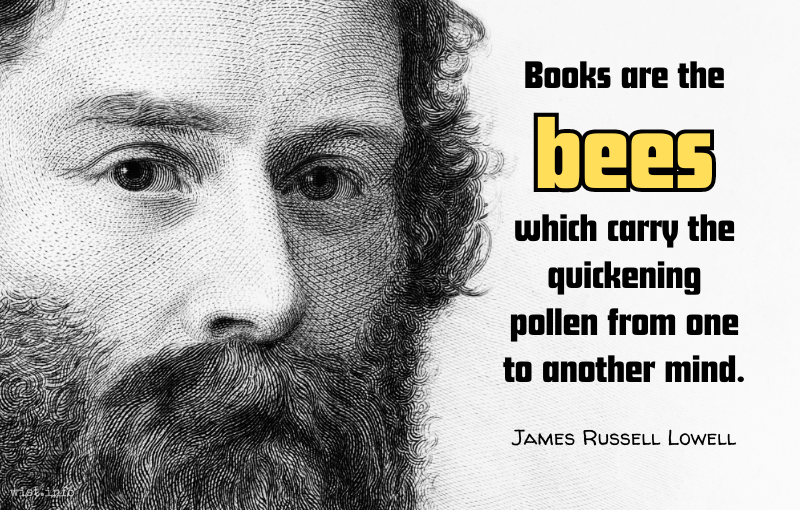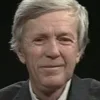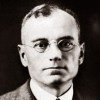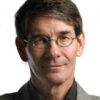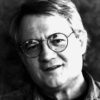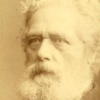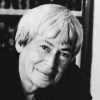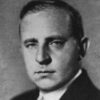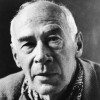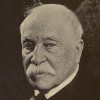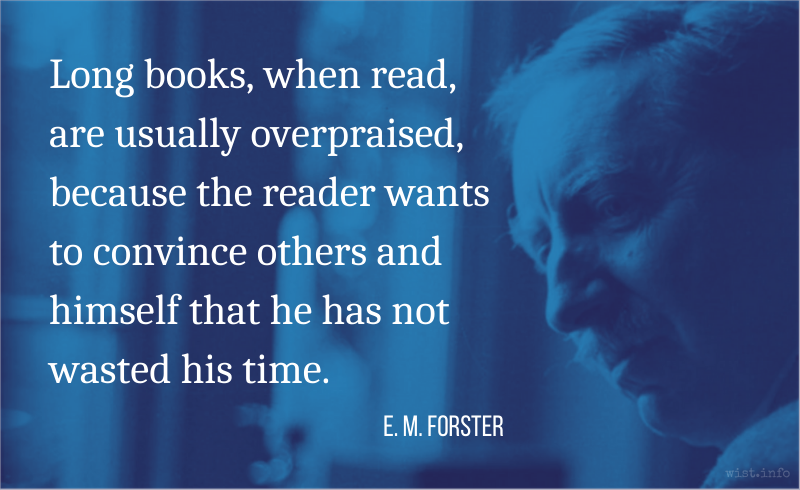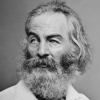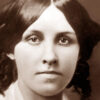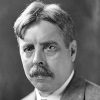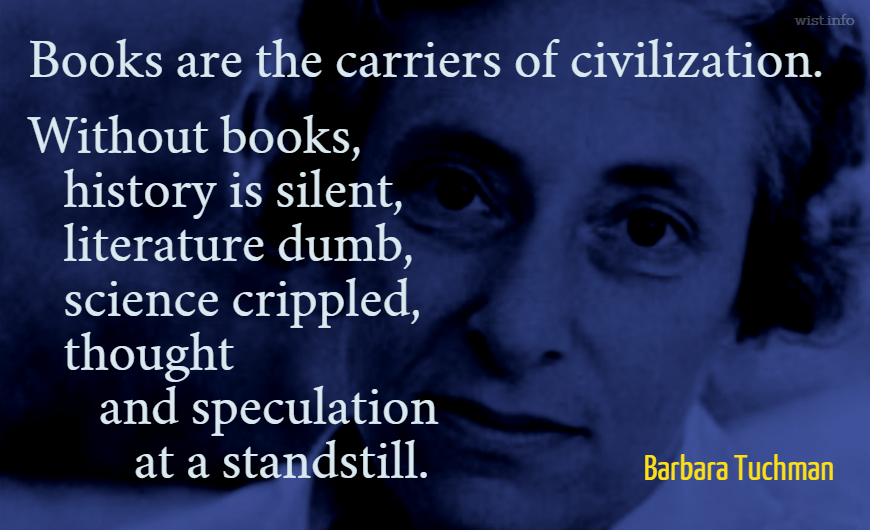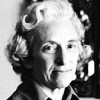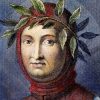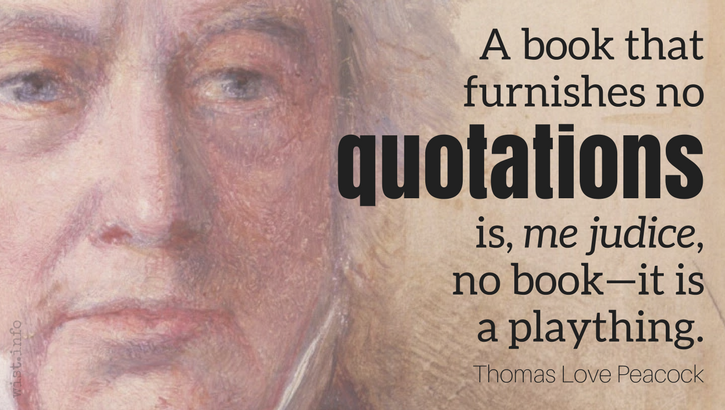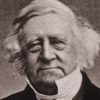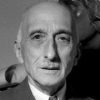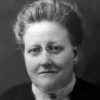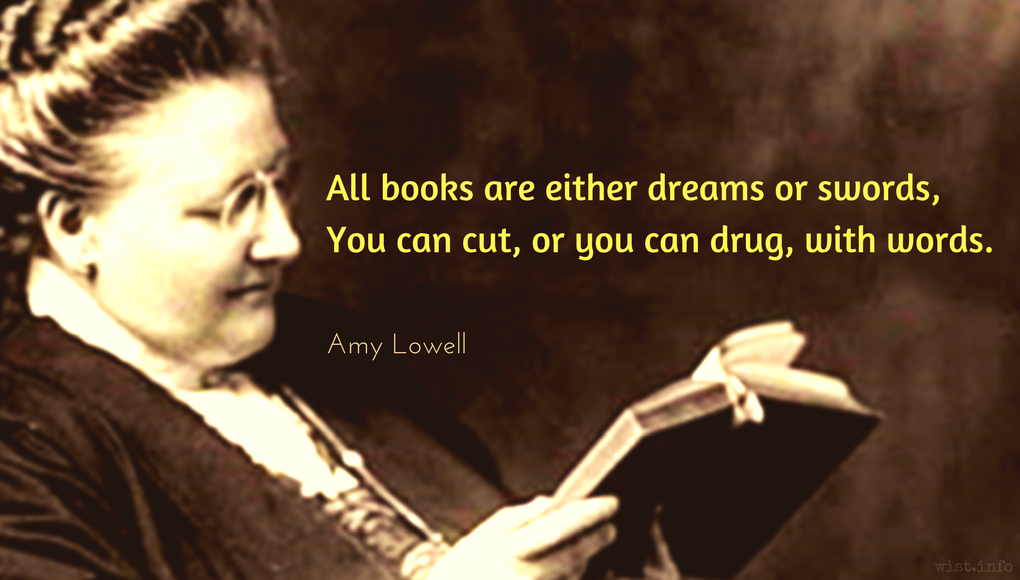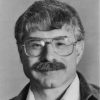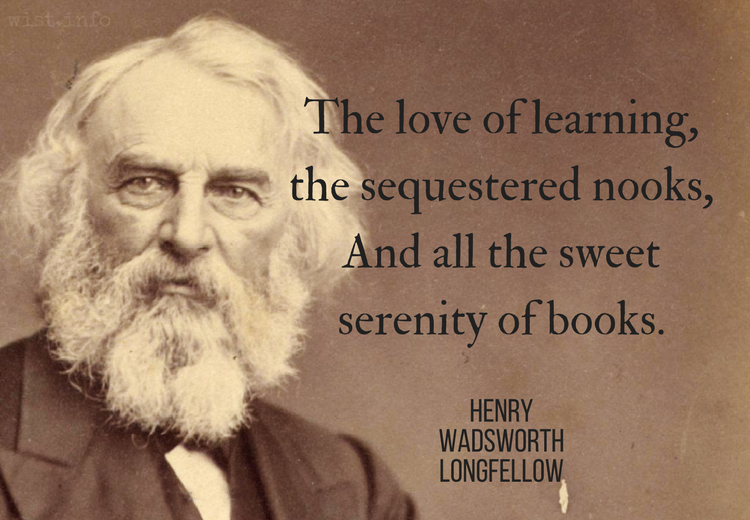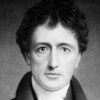Few books can please us throughout life. For some we lose all liking as we grow in age, wisdom, or good sense.
[Peu de livres peuvent plaire toute la vie. Il y en a dont on se dégoûte avec le temps, la sagesse ou le bon sens.]
Joseph Joubert (1754-1824) French moralist, philosopher, essayist, poet
Pensées [Thoughts], ch. 23 “Des Qualités de l’Écrivain [Of the Qualities of Writers],” ¶ 178 (1850 ed.) [tr. Attwell (1896), ¶ 375]
(Source)
(Source (French)). Alternate translations:
Few books give life-long pleasure. There are some for which, with the growth of time, wisdom, and good sense, we lose all taste.
[tr. Lyttelton (1899), ch. 22, ¶ 84]
Quotations about:
books
Note not all quotations have been tagged, so Search may find additional quotes on this topic.
Library books were, I suddenly realized, promiscuous, ready to lie in the arms of anyone who asked. Not like bookstore books, which married their purchasers, or were brokered for marriages to others.
With books, as with companions, it is of more consequence to know which to avoid, than which to chuse; for good books are as scarce as good companions, and in both instances, all that we can learn from bad ones, is, that so much time has been worse than thrown away.
Charles Caleb "C. C." Colton (1780-1832) English cleric, writer, aphorist
Lacon: Or, Many Things in Few Words, Vol. 1, Preface (1820)
(Source)
The walls of books around me, dense with the past, formed a kind of insulation against the present world and its dangers. I hated to get up.
Ross Macdonald (1915-1983) American-Canadian author [pseud. of Kenneth Millar]
The Chill, ch. 8 (Lew Archer) (1963)
(Source)
Often misquoted in the third person ("The walls of books around him ...")
Books are the bees which carry the quickening pollen from one to another mind.
James Russell Lowell (1819-1891) American diplomat, essayist, poet
“Nationality in Literature,” North American Review, Article 10 (1849-07)
(Source)
Reviewing Henry Wadsworth Longfellow, Kavanagh (1849).
Of all authors, I despise none more than the compilers, who go off in all directions looking for bits and pieces of other writers’ works, which they then stick into their own, like pieces of turf into a lawn; they’re in no way superior to those printer’s typesetters, who arrange letters which, combined together, make a book, to which they contributed only the manual labour. I would like the original texts to be respected; I feel it’s a kind of profanation, to extract the pieces which make them up from the sanctuary where they belong, and expose them to a contempt they do not deserve. When a man has nothing new to say, why does he not keep silent?
[De tous les auteurs, il n’y en a point que je méprise plus que les compilateurs, qui vont, de tous côtés, chercher des lambeaux des ouvrages des autres, qu’ils plaquent dans les leurs, comme des pièces de gazon dans un parterre: ils ne sont point au-dessus de ces ouvriers d’imprimerie qui rangent des caractères, qui, combinés ensemble, font un livre où ils n’ont fourni que la main. Je voudrois qu’on respectât les livres originaux; et il me semble que c’est une espèce de profanation de tirer les pièces qui les composent du sanctuaire où elles sont, pour les exposer à un mépris qu’elles ne méritent point. Quand un homme n’a rien à dire de nouveau, que ne se tait-il?]Charles-Lewis de Secondat, Baron de Montesquieu (1689-1755) French political philosopher
Persian Letters [Lettres Persanes], Letter 66, Rica to *** (1721) [tr. Mauldon (2008)]
(Source)
It is unclear what Montesquieu / his character would have thought of quotation collections.
(Source (French)). Alternate translations:
Of all Authors, there is none I despise more than the Compilers, who forage far and wide for Scraps of other Men's Works, which they piece into their own, like so many Dabs of Green Turf in a Flower-garden: they are not a whit superior to those that work in a Printing-house, who distribute the Types, which being put together make a Book, towards which they furnish'd nothing but Manual Labour. I am for having Original Authors reverenc'd: and, in my Judgment, 'tis a sort of Prophanation to drag, as it were out of their Sanctuary, Pieces of their Works, and expose them to a Contempt which they deserve not. If a Man has nothing new to say, why don't he hold his Tongue?
[tr. Ozell (1736 ed.), # 64]
Of all kind of authors, there are none I despise more than compilers, who search every where for shreds of other men's works, which they join to their own, like so many pieces of green turf in a garden: they are not at all superior to compositors in a printing house, who range the types, wh:ch, collected together, make a book, towards which they contribute nothing but the labours of the hand. I would have original writers respected, and it seems to me, a kind of profanation to take those pieces from the sanftuary in which they reside, and to expose them to a contempt they do not deserve. When a man hath nothing new to say, why does not he hold his tongue?
[tr. Floyd (1762)]
Of all the authors, there are none whom I despise more than compilers. They crowd from all quarters to pick up the shreds of other men’s works; these they fit into their own, as one would patch the turf of a lawn: they are not one whit superior to the compositor, whose type-setting may be called book-making if manual labor is all. I would have original books respected; and it seems to me a species of profanation, to take from them the matter of which they are composed, as if from a sanctuary, and expose it to an undeserved contempt. When a man has nothing new to say, why can’t he be quiet?
[tr. Davidson (1891)]
There is no class of authors I despise more than I do compilers, who come from every side to search for the fragments of other men's works, which they wedge into their own, just as you would introduce patches of turf into the border of a flower-plot. They are not superior to printers who arrange characters in such a way as to produce a book, but whose manual labor has been all that has entered into its composition. I would have original books respected. It is a kind of profanation to tear from them the parts of which they are composed, as if from a sanctuary, and thereby expose them to a contempt they do not deserve.
[tr. Betts (1897)]
Of all authors, I most despise the compilers, who search everywhere in the works of others for fragments which they then fit into their own, much as you would piece turf into a lawn. They are no better authors than the printers who select and combine letters and thus, contributing only their manual labor, make a book. I would have original books respected, and it seems to me that there is something profane in tearing constituent pieces from their sanctuary and exposing them to a scorn they do not deserve. When a man has nothing to say, why is he not silent?
[tr. Healy (1964)]
Of all these authors, the ones I despise the most are the compilers, the ones who rummage through the works of others and tear off strips to patch into their own books, like bits of turf in a lawn. They are no better than the compositors who work for the printers, putting letters together so as to form a book; they have contributed nothing but the use of their hands. I think original books ought to be more respected, for I think it is a kind of profanation to take fragments out of their sanctuary and expose them to a contempt that they do not merit. When a man has nothing new to say, why does he not keep quiet?
[tr. MacKenzie (2014)]
It seems to be a wise provision of nature that the follies of men should be short-lived; but books interfere and immortalize them. A fool, not content with having bored all those who have lived with him, insists on tormenting generations to come; he would have his folly triumph over oblivion, which should have been as welcome to him as death; he wishes posterity to be informed of his existence, and he would have it remember for ever that he was fool.
[La nature sembloit avoir sagement pourvu à ce que les sottises des hommes fussent passagères, et les livres les immortalisent. Un sot devroit être content d’avoir ennuyé tous ceux qui ont vécu avec lui : il veut encore tourmenter les races futures, il veut que sa sottise triomphe de l’oubli, dont il auroit pu jouir comme du tombeau; il veut que la postérité soit informée qu’il a vécu, et qu’elle sache à jamais qu’il a été un sot.]
Charles-Lewis de Secondat, Baron de Montesquieu (1689-1755) French political philosopher
Persian Letters [Lettres Persanes], Letter 66, Rica to *** (1721) [tr. Davidson (1891)]
(Source)
Commonly paraphrased as "An author is a fool who, not content with having bored those who have lived with him, insists on boring future generations."
(Source (French)). Alternate translations:
Nature seems wisely to have provided that the Follies of Men shou'd pass away, but Books perpetuate them. A Fool ought to be satisfy'd with having teaz'd those who liv'd at the same Time with him: but he is for going further, and is resolved to plague the Generations to come he is resolv'd to make his Impertinence triumph over Oblivion, which he might have enjoy'd as well as his Grave: he will have Posterity know that such a one liv'd, and all future Ages be inform'd that he was a Fool.
[tr. Ozell (1736 ed.), Letter 64]
Nature seems to have provided, that the follies of men should be transient, but they by writing books render them permanent. A fool ought to content himself with having wearied those who lived with him: but he is for tormenting future generations; he is desirous that his folly should triumph over oblivion, which he ought to have enjoyed as well as his grave; he is desirous that posterity should be informed that he lived, and that it should be known for ever that he was a fool.
[tr. Floyd (1762)]
Nature has wisely provided that the follies of men should be ephemeral; but, unhappily, these very follies are immortalised in books. A fool ought to have been satisfied with boring all those who have lived with him; yet he insists on torturing future races; he is determined that his folly shall triumph over the oblivion in which he ought to have been able to find as much enjoyment as he does in his last slumber; he wishes posterity to know that he has lived, and remember forever that he was a fool.
[tr. Betts (1897)]
While nature seems wisely to have provided that the stupidities of men should be transient, books immortalize them. A fool should be content with boring everyone who has lived with him, but he further undertakes to torment future generations. He wants his folly to triumph over the oblivion which he should welcome like the sleep of the tomb; he wants to inform posterity that he has lived, and to have it forever remembered that he was a fool.
[tr. Healy (1964)]
Nature in her wisdom seems to have arranged for man's follies to be short-lived, and books render them immortal. A fool ought to be satisfied with having bored all his own contemporaries, but he also seeks to torment those as yet unborn; he wants his stupidity to triumph over oblivion, which he might, like the tomb, have enjoyed; but no, he wants posterity to be notified that he has lived, and he wants her to know, for all eternity, that he was an idiot.
[tr. Mauldon (2008), Letter 64]
Nature has so arranged things that the absurdities men say are passing things, but books give them immortal life. A fool ought to have been content to have annoyed those who live near him, but instead he wants the chance to torment future generations. He wants his absurdities to triumph over the complete oblivion that he really ought to have welcomed and enjoyed like a tomb. He wants posterity to be informed that he lived, and he wants it known for all time that he was a fool.
[tr. MacKenzie (2014), Letter 64]
Vacation cruises are advertised as luxurious journeys to exotic places, but a chief pleasure is the reading of books [….] On steamer chairs topside or poolside, in the lounges, everywhere you see men and women with their noses in books, devouring them for hours. The Book: Man’s Chief Weapon Against Tedium. Woman’s too.
Garrison Keillor (b. 1942) American entertainer, author
“The Floating Village,” New York Times (2010-01-06)
(Source)
There is this disadvantage to be endured in reading books by members of some party or faction, that they do not always give us the truth. Facts are distorted, opposing points of view are not stated with sufficient force or with complete accuracy; and the most longsuffering reader must tire at last of such a great number of harsh and insulting terms used against one another by these earnest men, who make a personal quarrel out of a doctrinal point or a disputed fact. The peculiar thing about these works is that they deserve neither the prodigious vogue they enjoy for a while nor the profound neglect into which they lapse when, passions and divisions having died down, they become like last year’s almanacs.
[L’on a cette incommodité à essuyer dans la lecture des livres faits par des gens de parti et de cabale, que l’on n’y voit pas toujours la vérité. Les faits y sont déguisés, les raisons réciproques n’y sont point rapportées dans toute leur force, ni avec une entière exactitude; et, ce qui use la plus longue patience, il faut lire un grand nombre de termes durs et injurieux que se disent des hommes graves, qui d’un point de doctrine ou d’un fait contesté se font une querelle personnelle. Ces ouvrages ont cela de particulier qu’ils ne méritent ni le cours prodigieux qu’ils ont pendant un certain temps, ni le profond oubli où ils tombent lorsque, le feu et la division venant à s’éteindre, ils deviennent des almanachs de l’autre année.]
Jean de La Bruyère (1645-1696) French essayist, moralist
The Characters [Les Caractères], ch. 1 “Of Works of the Mind [Des Ouvrages de l’Esprit],” § 58 (1.58) (1688) [tr. Stewart (1970)]
(Source)
Some translators suggests this references polemical writings between the Jesuits and Jansenists.
(Source (French)). Alternate translations:
We have this disadvantage in reading Books written by Men of Party and Cabal: We seldom meet with the Truth in 'em; Actions are there disguised, the reasons of both sides are not alledg'd with all their force, nor with an entire exactness. He who has the greatest patience must read abundance of hard, injurious reflexions on the gravest men, with whom the Writer has some personal quarrel about a point of Doctrine, or matter of Controversie. These Books are particular in this, that they deserve not the prodigious Sale they find at their first appearance, nor the profound Oblivion that attends 'em after∣wards: When the fury and division of these Authors cease, they are forgotten, like an Almanack out of date.
[Bullord ed. (1696)]
We have this Inconveniency in reading Books written by Men of Party and Cabal, we seldom meet Truth in them; Actions are there disguis'd, the Reasons of both sides not alledg'd with all their force, nor with an entire exactness. He who has the greatest Patience, must read abundance of hard and scurrilous Reflections on the gravest Men, who make a personal Quarrel about a Point of Doctrine, or Matter of Controversy. These Books are particular in this, that they deserve not the prodigious Sale they find at their first appearance, nor the profound Oblivion which attends 'em afterwards. When the Fury and Division of Parties cease, they are forgotten like Almanacks out of date.
[Curll ed. (1713)]
This is the certain disadvantage of reading Books written by Men of Party and Cabal, Truth is not in them; Actions are disguised, the Reasons of both sides are not alledged with all their force, nor with an entire exactness. And, what no patience can bear, he must read abundance of scurrilous Reflections tost to and fro by grave Men, making a personal Quarrel about a Point of Doctrine, or controverted Fact. These Books are particular in this, that they deserve not the prodigious Sale they find at their first appearance, nor the profound Oblivion that attends them afterwards: When the Ebullitions of Parties subside, they are forgotten like an Almanack out of date.
[Browne ed. (1752)]
The disadvantage of reading books written by people belonging to a certain party or a certain set is that they do not always contain the truth. Facts are disguised, the arguments on both sides are not brought forward in all their strength, nor are they quite accurate; and what wears out the greatest patience is that we must read a large number of harsh and scurrilous reflections, tossed to and fro by serious-minded men, who consider themselves personally insulted when any point of doctrine or any doubtful matter is controverted. Such works possess this peculiarity, that they neither deserve the prodigious success they have for a certain time, nor the profound oblivion into which they fall afterwards, when the rage and contention have ceased, and they become like almanacks out of date.
[tr. Van Laun (1885)]
Indeed, it is a cruel truth of the history of all art and literature that most would-be poets, writers, and painters fail. The man or woman of real talent is rare, the born genius rarer still. For every book that survives the merciless judgment of time, there are nine hundred and ninety-nine rotting unread in libraries and nine thousand and ninety-nine that were never written in the first place.
Michael Harrington (1928-1989) American writer, political activist, political scientist [Edward Michael Harrington, Jr.]
Fragments of the Century, ch. 2 “The Death of Bohemia” (1973)
(Source)
Reading is a joy, but not an unalloyed joy. Books do not make life easier or more simple, but harder and more interesting.
Harry Golden (1902-1981) Austrian-American writer and newspaper publisher [b. Herschel Goldhirsch]
So What Else is New?, “How to read a book, and why” (1964)
(Source)
Generally speaking, men are influenced by books which clarify their own thought, which express their own notions well, or which suggest to them ideas which their minds are already predisposed to accept.
Carl L. Becker (1873-1945) American historian
The Declaration of Independence, ch. 2 “Natural Rights Philosophy” (1922)
(Source)
The world is a library of strange and wonderful books, and sometimes we just need to go prowling through the stacks.
Michael Dirda (b. 1948) American book critic
Book by Book: Notes on Reading and Life, ch. 8 (2005)
(Source)
“What think you of books?” said he, smiling.
“Books — oh! no. I am sure we never read the same, or not with the same feelings.”
“I am sorry you think so; but if that be the case, there can at least be no want of subject. We may compare our different opinions.”Jane Austen (1775-1817) English author
Pride and Prejudice, ch. 18 [Darcy and Elizabeth] (1813)
(Source)
Books are like imprisoned souls until someone takes them down from a shelf and frees them.
Samuel Butler (1835-1902) English novelist, satirist, scholar
The Note-Books of Samuel Butler, ch. 7 “On the Making of Music, Pictures and Books,” “Thought and Word,” sec. 9 (1912)
(Source)
Books are embalmed minds; they make the great of other days our present teachers. Through books we look, as through “a glass darkly,” upon those vast multitudes whose bodies have passed to dust, and form the earth we tread upon, and through them we, in our turn, shall be made known to coming time.
Christian Nestell Bovee (1820-1904) American epigrammatist, writer, publisher
Intuitions and Summaries of Thought, Vol. 1, “Books” (1862)
(Source)
There is really no way of considering a book independently of one’s special sensations in reading it on a particular occasion. In this as in everything else one must allow a certain relativity. In a sense, one can never read the book that the author originally wrote, and one can never read the same book twice.
Edmund Wilson, Jr. (1895-1972) American writer, literary critic, journalist
The Triple Thinkers, Foreword (1948 ed.)
(Source)
A good heavy book holds you down. It’s an anchor that keeps you from getting up and having another gin and tonic. Many a person has been saved from summer alcoholism, not to mention hypertoxicity, by Dostoyevsky.
Roy Blount, Jr. (b. 1941) American writer, speaker, journalist, humorist
“Reading and Nothingness: Of Proust in the Summer Sun,” New York Times (1985-06-02)
(Source)
A book is a garden; a book is an orchard; a book is a storehouse; a book is a party. It is company by the way; it is a counselor; it is a multitude of counselors.
Henry Ward Beecher (1813-1887) American clergyman and orator
Proverbs From Plymouth Pulpit, “The Press” (1887) [ed. Drysdale]
(Source)
Worthy books
Are not companions — they are solitudes:
We lose ourselves in them and all our cares.Philip James Bailey (1816-1902) English poet, lawyer
Festus, Sc. “A Village Feast – Evening” [Student] (1839)
(Source)
Books are the legacies that a great genius leaves to mankind, which are delivered down from generation to generation, as presents to the posterity of those who are yet unborn.
Joseph Addison (1672-1719) English essayist, poet, statesman
The Spectator #166 (1711-09-10)
(Source)
What had men thought? What had men believed? How did they come by those thoughts and beliefs? How had men learned to govern themselves? Were the processes the same everywhere?
Did man build cities because of an inner drive, like that of a beaver to build dams? How much of what we do is free will, and how much is programmed in our genes? Why is each people so narrow that it believes that it, and it alone, has all the answers? In religion, is there but one road to salvation? Or are there many, all equally good, all going in the same general direction?
I have read my books by many lights, hoarding their beauty, their wit or wisdom against the dark days when I would have no book, nor a place to read.
I have known hunger of the belly kind many times over, but I have known a worse hunger: the need to know and to learn.
Louis L'Amour (1908-1988) American writer
Education of a Wandering Man: A Memoir, ch. 11 (1989)
(Source)
Books aren’t just commodities; the profit motive is often in conflict with the aims of art. We live in capitalism, its power seems inescapable — but then, so did the divine right of kings. Any human power can be resisted and changed by human beings. Resistance and change often begin in art. Very often in our art, the art of words.
Ursula K. Le Guin (1929-2018) American writer
Speech, accepting the National Book Foundation Medal (19 Nov 2014)
(Source)
On receiving the National Book Foundation Medal for Distinguished Contribution to American Letters at the 65th National Book Awards. Video of the speech.
It is what you read when you don’t have to that determines what you will be when you can’t help it.
Charles Francis Potter (1885-1962) American Unitarian minister, theologian, humanist, activist
Speech, Dayton, Ohio (Apr 1927)
Often misattributed to Oscar Wilde. More discussion here: What You Read When You Don’t Have To, Determines What You Will Be When You Can’t Help It – Quote Investigator
Books are one of the few things men cherish deeply. And the better the man, the more easily will he part with his most cherished possessions. A book lying idle on a shelf is wasted ammunition. Like money, books must be kept in constant circulation. Lend and borrow to the maximum — of both books and money. But especially books, for books represent infinitely more than money.
The mortality of all inanimate things is terrible to me, but that of books most of all.
William Dean Howells (1837-1920) American author, literary critic, and playwright
Letter to Charles Eliot Norton (6 Apr 1903)
(Source)
Besides, I like libraries. It makes me feel comfortable and secure to have walls of words, beautiful and wise, all around me. I always feel better when I can see that there is something to hold back the shadows.
A man can never have too much red wine, too many books, or too much ammunition.
Dreams, books, are each a world; and books we know,
Are a substantial world, both pure and good:
Round these, with tendrils strong as flesh and blood,
Our pastime and our happiness will grow.
Long books, when read, are usually overpraised, because the reader wants to convince others and himself that he has not wasted his time.
E. M. Forster (1879-1970) English novelist, essayist, critic, librettist [Edward Morgan Forster]
Commonplace Book (1985) [ed. Gardner]
(Source)
The owner of the library is not he who holds a legal title to it, having bought and paid for it. Anyone and everyone is owner of the library who can read the same through all the varieties of tongues and subjects and styles, and in whom they enter with ease and take residence and force toward paternity and maternity, and make supple and powerful and rich and large.
Walt Whitman (1819-1892) American poet
Leaves of Grass, Preface (1855)
(Source)
Reprinted on the wall of Atlantis Books, Oia, Santorini, Greece.
She is too fond of books, and it has turned her brain.
But beware you be not swallowed up in books: An ounce of love is worth a pound of knowledge.
John Wesley (1703-1791) English cleric, Christian theologian and evangelist, founder of Methodism
Letter to Joseph Benson (7 Nov 1768)
(Source)
If the books which you read are your own, mark with a pen or pencil the most considerable things in them which you desire to remember. Then you may read that book the second time over with half the trouble, by your eye running over the paragraphs which your pencil has noted. It is but a very weak objection against this practice to say, I shall spoil my book; for I persuade myself that you did not buy it as a bookseller, to sell again for gain, but as a scholar, to improve your mind by it; and if the mind be improved, your advantage is abundant, through your book yields less money to your executors.
Isaac Watts (1674-1748) English theologian and hymnodist
Logic on the Right Use of Reason in the Enquiry after Truth (1724)
(Source)
Books are the carriers of civilization. Without books, history is silent, literature dumb, science crippled, thought and speculation at a standstill.
Barbara W. Tuchman (1912-1989) American historian and author
“Papyrus to Paperbacks: The World That Books Made,” Washington Post (30 Dec 1979)
(Source)
Of human knowledge as a whole and in every branch of it, by far the largest part exists nowhere but on paper, — I mean, in books, that paper memory of mankind.
[Von dem menschlichen Wissen überhaupt, in jeder Art, existirt der allergrößte Theil stets nur auf dem Papier, in den Büchern, diesem papiernen Gedächtniß der Menschheit.]
Arthur Schopenhauer (1788-1860) German philosopher
Parerga and Paralipomena, Vol. 2, ch. 21 “On Learning and the Learned [Über Gelehrsamkeit und Gelharte],” § 254 (1851) [tr. Saunders (1890)]
(Source)
(Source (German)). Alternate translation:
Of human knowledge in general and in every branch thereof, by far the greatest part exists always only on paper, in books, this paper-memory of mankind.
[tr. Payne (1974)]
Ah, Stefan, give me a man or woman who has read a thousand books and you give me an interesting companion. Give me a man or woman who has read perhaps three and you give me a dangerous enemy indeed.
Anne Rice (b. 1941) American author [b. Howard Allen Frances O'Brien]
The Witching Hour, Part 2 (1990)
(Source)
Books have led some to learning and others to madness, when they swallow more than they can digest.
Francesco Petrarca (1304-1374) Italian scholar and poet [a.k.a. Petrarch]
Remedies for Fortune Fair and Foul [De Remediis Utriusque Fortunae] [tr. Elton (1893)]
Alt. trans.: "Books have brought some men to knowledge, and some to madness. whilst they drew out of them more than they could digest." [tr. Dobson (1791)]
Alt. trans.: "Books have led some to knowledge and some to madness, who drew from them more than they could hold." [tr. Rawski (1991)]
The thing about Tom Clancy is that you can start reading a Tom Clancy book when the plane takes off in London and you’re still reading it when the plane lands in Sydney. And then you can use it to beat snakes to death.
My quarrel with him is, that his works contain nothing worth quoting; and a book that furnishes no quotations is, me judice, no book — it is a plaything.
Thomas Love Peacock (1785-1866) English novelist, satirist, poet, merchant
Crochet Castle, ch. 9 (1831)
(Source)
Back in the nineteen-hundreds it was a wonderful experience for a boy to discover H. G. Wells. There you were, in a world of pedants, clergymen and golfers, with your future employers exhorting you to “get on or get out”, your parents systematically warping your sexual life, and your dull-witted schoolmasters sniggering over their Latin tags; and here was this wonderful man who could tell you about the inhabitants of the planets and the bottom of the sea, and who knew that the future was not going to be what respectable people imagined.
George Orwell (1903-1950) English writer [pseud. of Eric Arthur Blair]
“Wells, Hitler, and the World State,” Horizon (Aug 1941)
(Source)
All books are either dreams or swords,
You can cut, or you can drug, with words.
Books to the ceiling, books to the sky.
My pile of books are a mile high.
How I love them!
How I need them!
I’ll have a long beard by the time I read them.
Books serve to show a man that those original thoughts of his aren’t very new after all.
Abraham Lincoln (1809-1865) American lawyer, politician, US President (1861-65)
(Attributed)
(Source)
Recounted in the Pennsylvania School Journal, Vol. 46, #7 (Jan 1898) as an anecdote from a clergyman printed in the New York Tribune.
The love of learning, the sequestered nooks,
And all the sweet serenity of books.
The book has been man’s greatest triumph. Seated in my library, I live in a Time Machine. In an instant I can be transmitted to any era, any part of the world, even to outer space. I have lived in every period of history. I have listened to Buddha speak, marched with Alexander, sailed with the Vikings, ridden in canoes with the Polynesians. I have been at the courts of Queen Elizabeth and Louis XIV; I have been a friend to Captain Nemo and have sailed with Captain Bligh on the Bounty. I have walked in the agora with Socrates and Plato, and listened to Jesus deliver the Sermon on the Mount.
Best of all, I can do it all again, at any moment. The books are there. I have only to reach up to the shelves and take them down to relive the moments I have loved.





